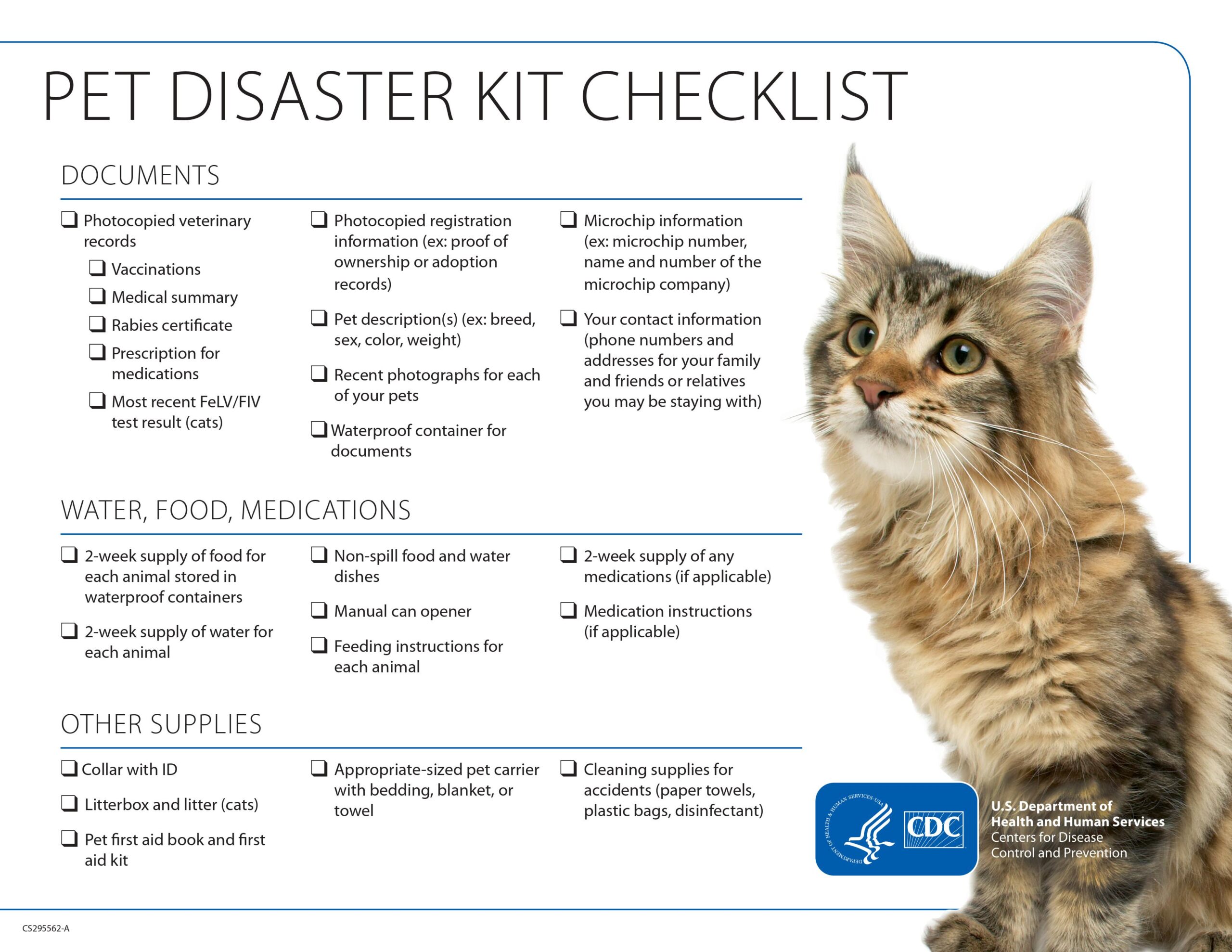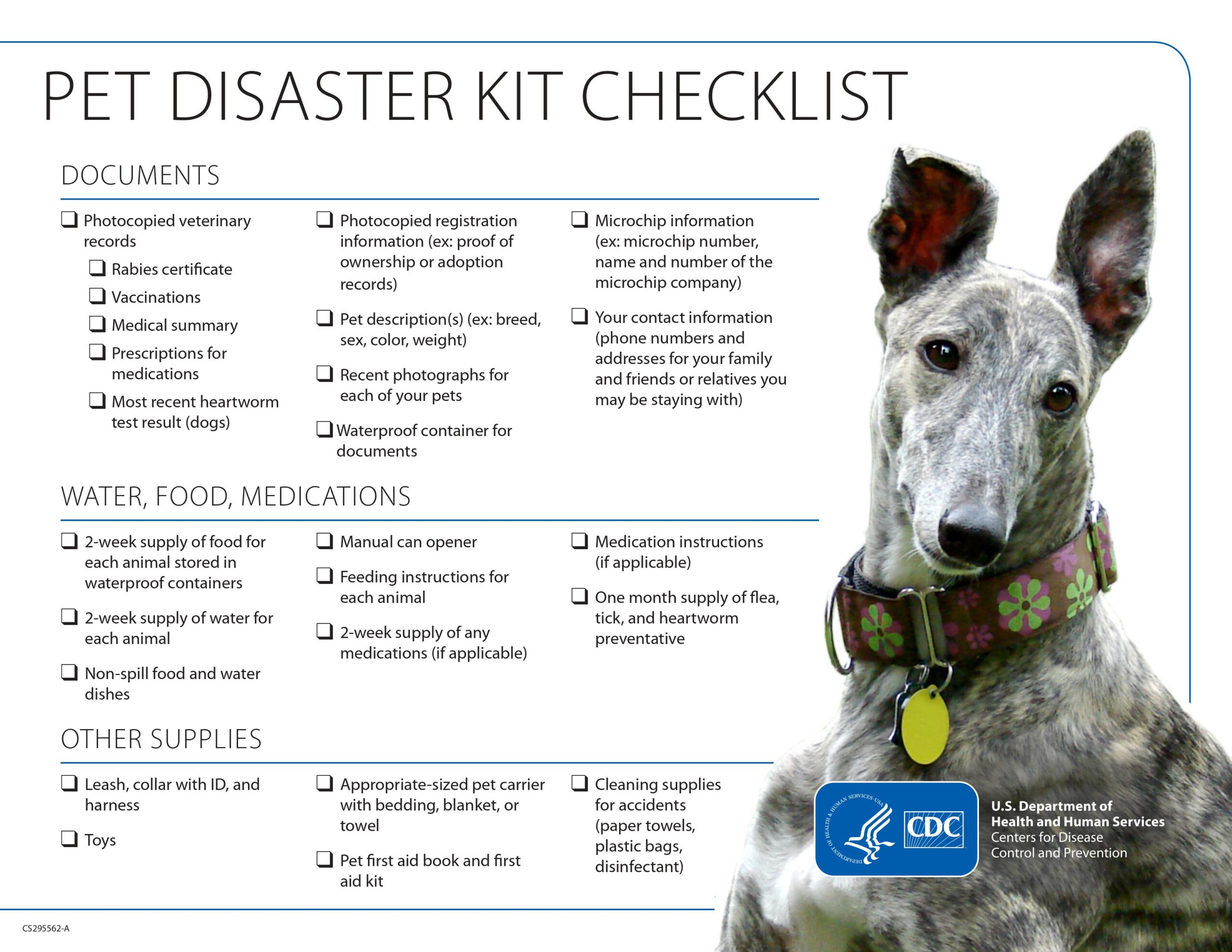Between the never-ending fire season in California and storms everywhere else, natural disasters are on lots of peoples’ minds. If you’re a pet parent, in addition to yourself, you have your pet to think about.
What can we do to prepare our pets in case of an emergency? Here are some quick tips:
- Crate and Carrier Practice: If you need to shelter in place or evacuate, your pet is going to need to shelter in place or evacuate with you. For most pets, this means being placed into a crate! If your dog is not crate trained, practice that now; if the only time your cat sees a carrier is when they are off to the veterinarian, start having your cat associate a carrier with positive things. The last thing you want to be dealing with in an emergency is a pet who refuses to get into a crate or carrier.
- Locate a Pet Friendly Shelter: Times have changed and more shelters now accept pets, but more is not all. Red Cross shelters do not accept pets. Check with your local emergency management personnel to confirm which shelters are pet friendly. You should also prepare a list of backup arrangements such as pet friendly hotels, boarding facilities, veterinarians and/or animal shelters that can assist.
- Have a relationship with someone who can help: Sadly, when an emergency happens you may not be at home but your pets might be. Make sure that there is someone you can call who can help out.
- Prepare a Pet Disaster Preparedness Kit: The CDC recommends the following be included:
- Photocopies of veterinary records such as vaccination records, medical summary, and prescriptions.
- Something that proves the pets are yours.
- Recent photographs of your pets.
- Microchip information and your contact information.
- Prepared instructions for a possible caregiver.
- Pack food, water and medicine.
CDC has prepared a checklist poster that includes all this information and more:

Hopefully you’ll never have to use any of this information, but if you do, having a plan will help to keep you and your pets safe.
Thanks for reading and stay safe.
